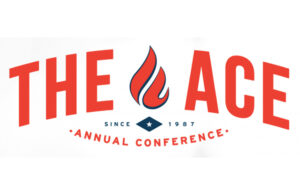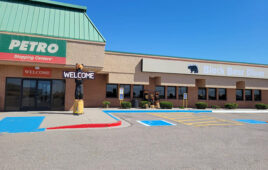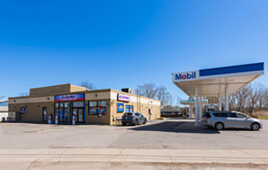 At the American Coalition for Ethanol’s (ACE) 35th annual conference, ACE Chief Marketing Officer Ron Lamberty will moderate a conversation between representatives with California-based Pearson Fuels and Bosselman Enterprises, owner of the Nebraska-based Pump & Pantry c-store chain.
At the American Coalition for Ethanol’s (ACE) 35th annual conference, ACE Chief Marketing Officer Ron Lamberty will moderate a conversation between representatives with California-based Pearson Fuels and Bosselman Enterprises, owner of the Nebraska-based Pump & Pantry c-store chain.
With historically high gas prices and the push to net zero vehicles, fuel retailers offering higher ethanol blends are posting eye-popping low prices for lower carbon fuels, bringing in new customers and some of the best margins they’ve seen in years.
Pearson Fuels and Bosselman Enterprises recognized the price advantage ethanol delivers and learned how Renewable Identification Numbers (RINs), Low Carbon Fuel Standard (LCFS) credits and state tax policy can save drivers a lot of money while giving ethanol blend marketers a huge competitive advantage in California, Kansas and Nebraska fuel markets.
The panel will cover the “math” associated with selling E15 and flex fuels, including LCFS credits and RINs, and highlight the volume ethanol blends like E15 and particularly E85 are moving, and could move in the marketplace, in addition to how USDA’s Higher Blends Infrastructure Incentive Program (HBIIP) supports these efforts.
As one of the nation’s largest E85 distributors, Pearson Fuels’ sales have consistently increased despite the state’s distance from Midwest ethanol production. While electric vehicles dominate the carbon conversation, Pearson has been demonstrating how flex fuel vehicles have a big role to play now in reducing greenhouse gas emissions.
“I appreciate ACE’s commitment to promoting low carbon fuels and I’m excited ACE is providing a platform for Pearson to share our E85 success story with the industry,” said Greg Jones, director of business development with Pearson Fuels.
Bosselman Enterprises was one of the first marketers to sell E15 and E85 in Nebraska, and after gaining expertise on monetizing RINs, the knowledge helped the company quickly gain market share. According to Gard, adding E15 and E85 and pricing both competitively has helped the company increase its gallons, customer counts and average customer spend at its locations.
“ACE helped us understand RINs and we connected with ethanol producers directly through our involvement with ACE and state level associations,” Gard said. “Those relationships helped us develop strategic supply agreements and connect the dots in the supply chain. We’ve also learned how to capitalize on ethanol’s price advantage and not only offer our customers a cleaner, better fuel, but also gain a competitive advantage in the market. As a retailer, we stand willing and able to drive the industry forward and I look forward to discussing this at the ACE conference.”
ACE is a coalition that is powered by people who have built an innovative industry that sustainably delivers clean fuel and valuable food for a growing world. These farmers, ranchers, Main Street businesses, scientists, investors and renewable fuel producers work together to inform consumers and elected officials that ethanol delivers a great deal of human good.




